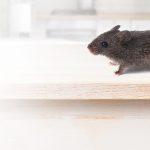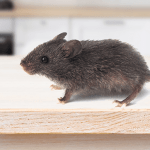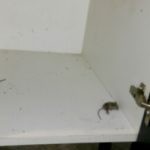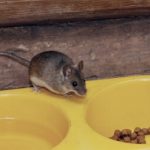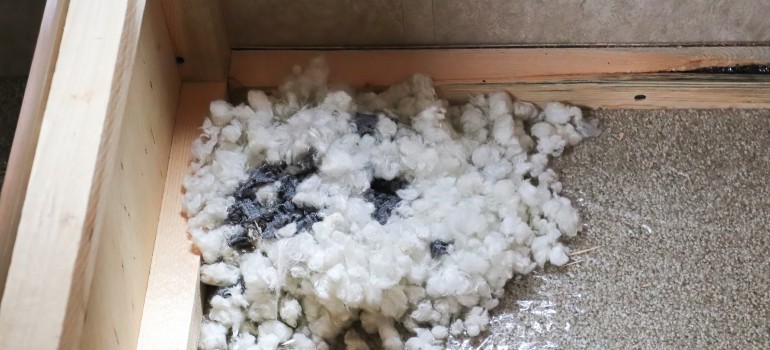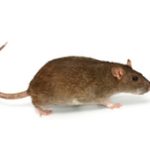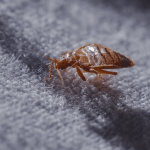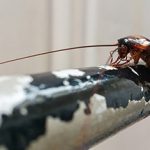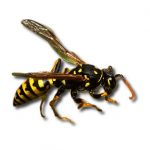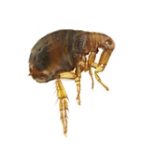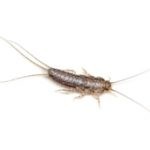How to Get Rid of Mice In the Walls
A sound of scratching or skittering was heard coming from the walls or ceiling? Mice typically live in hidden spots inside homes, such as storage boxes, attics, lofts and wall voids. A mouse can squeeze through even the smallest of holes in floors, walls and foundations. It can be extremely difficult to get rid of them once they are inside. But with the right knowledge, you can get it done!
How Do Mice Enter Houses?
Usually, mice enter homes through cracks or holes in walls, floors, or foundations. Mouse holes are typically not recognised by homeowners until they discover other signs of an infestation.
Mice determination shouldn’t be underestimated. They can climb, jump, and burrow into nearly any place they choose, including inside the wall cavity. Chimneys and roof vents are ideal pathways for rodents, too.
Additionally, mice may enter your home through gaps in windows, ceilings, or sewer lines. If the drainage pipes are improperly sealed, mice may be able to enter through the drains in sinks and bathtubs. They can use entry holes around appliances and gas lines, as well as through plumbing.
The drop in temperatures tends to cause infestations to start in the fall. Once a colony has entered a structure and found it to be warm and safe, it rarely ventures outside again. Mouse populations can reach 200 individuals within a few months and proliferate rapidly, so taking the necessary precaution is a must.
Signs of Mice in the Walls
- There is a noise coming from within the wall: A mouse may be moving around and gnawing on a structure as you listen.
- An unpleasant odour like urine: The walls of your house likely will smell of unpleasant odours once mice have lived there for a long time.
- Nests: Buildups of shredded paper, cotton balls, or other soft materials indicate nests or evidence of nests.
- Gnaw marks: Mice like to chew on things, so look around.
- Smear marks on baseboards: The oil on mice’s bodies rubs off easily since they like to travel near walls, so this oil is easy to spot on white baseboards.
- Mouse droppings: The faeces of mice will be found in cabinets, under appliances, and anywhere else mice have travelled. It is typical for the faeces to be black and to resemble pellets with pointed ends.
- Fur: If you find a lot of fur around your baseboards and you don’t have pets, you’re probably dealing with rodents.
Mice Control Methods
Mice cause significant damage to human food sources and wooden surfaces because of their nesting and feeding habits. These areas often have a bite or chew marks.
During daylight hours, mice who live inside walls are rarely seen leaving their nests. A gnawing and clawing sound indicate their presence. Rodents living within walls emerge at night looking for food. At this time, homeowners can catch mice using traps.
Traps
You can use food bait to entice mice out of the walls. Several types of traps are designed to kill captured rodents, while others require homeowners to release the mice outside. A trap must be placed properly and in areas where mice are likely to feed. Homeowners often place traps incorrectly, which results in them not being effective. Furthermore, traps may be dangerous if children or pets have access to them.
A manual snap trap is the most effective method of capturing and killing mice or rats, but it requires some patience. Additionally, it’s the least expensive option compared to the others. A small snap trap is intended to catch mice, and a large one is designed to catch rats. Traps should be installed close to walls and hidden areas.
In live traps, a rodent is captured inside a cage that closes after it is caught. These traps are a humane way to deal with mice and rats. Inspect the traps and empty them regularly once a mouse is caught. Then a new round begins.
Mice must be released in the wild one by one if you want to remove them without killing them. Release them as far as possible, so that they don’t come back.
This is only a good strategy if you are sure you have only a few mice in your house. When you have a larger infestation, it’s necessary to exterminate these rodents to ensure they don’t return.
Ultrasonic pest repellers
Ultrasonic devices may be used as pest repellents. Their purpose is to create high-intensity waves that make the mice uncomfortable, thus driving them away. Multiple brands of these electric devices are said to emit either a sonic or ultrasonic wave, which rodents find irritating.
Mothballs
One simple way to get rid of mice is to use mothballs. They can be placed in crawl spaces, attics, etc. By reacting with the air, mothball fumigants release fumes that are irritating to mice and rats. Rodents are therefore expected to stay away from mothballs.
Essential oils
Peppermint oil, lemon oil, citronella oil, and eucalyptus oil may help repel mice. You can treat areas where they have been present by leaving cotton balls soaked in peppermint oil, cayenne pepper, or clove oil.
Make an essential oil spray by mixing 2 teaspoons of oil with 1 cup of water or rubbing alcohol in a spray bottle. Spray it wherever traces of rodents are found. You’ll need to reapply the spray after about a week, and you should replace the cotton balls after two weeks if you use this method.
Rodenticides
Rodenticides should be used with caution. In some cases, poisonous pellets only partially solve a mouse problem. Some mice can be resistant to arsenic or anticoagulant poisons like warfarin. The best that can happen is a mouse or two will pick up the pellets you’ve strategically placed, carry them back to their nest, and one or more will die inside your walls.
In case you decide to use poison, make sure that pellets are placed in a tamper-resistant bait station (usually a large black box with one entrance and the poison buried deep within) to prevent accidents. Keep the station away from pets and children, yet close enough to the mice’s potential food source.
Block all entry points
Sealing all cracks, openings, and holes where mice can enter the house will prevent them from getting in. Properly closing the doors and windows is a must. Food should be stored in glass or metal containers with tight lids, and food waste should be disposed of as quickly as possible. Consider contacting an expert in pest control to gain additional insight and solutions.
Check also: How to Find Mice Entry Points
What to Do If Mice Die In the Wall?
There may be occasions when a mouse dies inside your wall. When you hear noises coming from the same area over a prolonged period, a mouse or other rodent may be stuck there and die. You must remove the corpse from the area if this happens because carcasses leave an extremely unpleasant odour when left to rot. Furthermore, this can attract other pests.
If you prefer to do it yourself and have the necessary equipment, you can use an electronic borescope to locate the corpse by drilling coin-sized holes into the drywall near the place where the scent is strongest. You will need to cut an opening large enough to remove the mouse once you find it.
If your attempts fail, and an infestation persists despite your best efforts, it may be time to call the pros. They can ensure a pest-free environment in your home since they know exactly what they’re doing.
The Benefits of Hiring a Pest Control Expert
Your best ally when it comes to mouse problems is a licensed pest control expert.
In addition to assessing your home, they can detect where mice are entering your property and where they are going. After that, they can put traps in your home, seal them off, and eliminate any food sources mice find tasty.
The damage caused by mice can be extensive, as they can chew through wires and insulation, and even tunnel through walls. Additionally, mouse urine and droppings can aggravate allergies and have a harmful impact on your health.
Having gotten the mice out, we can mouse-proof your home to prevent them from returning. That’s where our experience comes in handy. Based on what we know about mouse behaviour, we know where they get in. No stone will be left unturned, nor will we leave any mouse holes unplugged.
Looking for professional mice help?
Consider that we give information on possible ways to get rid of mice. However, we cannot affirm that all of the above methods will be effective for you.



